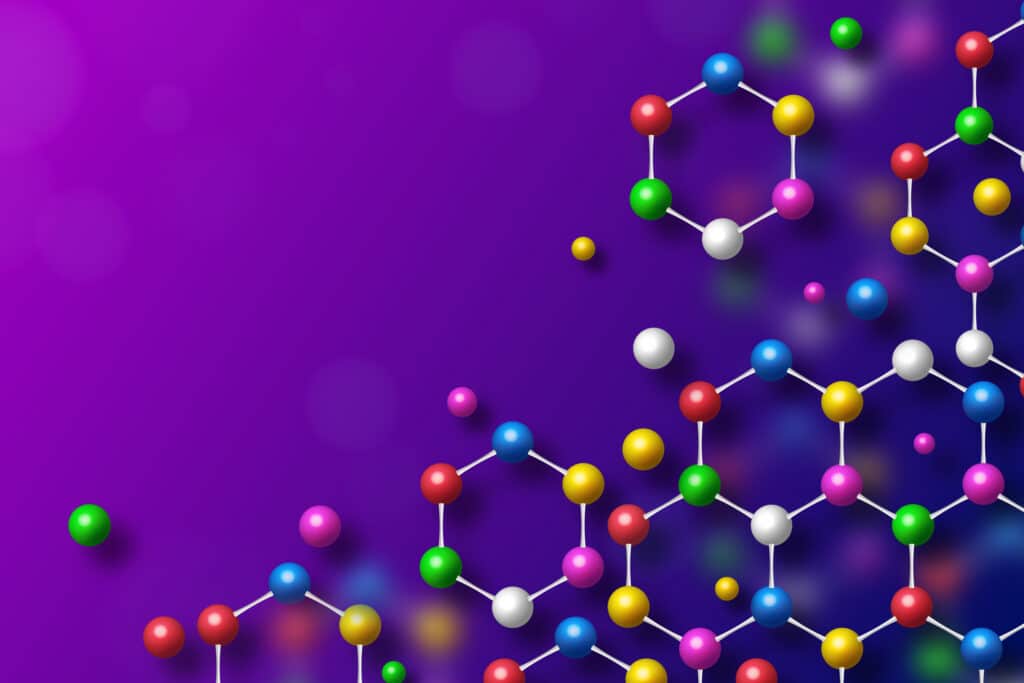The Red Wine Antioxidant: Natural Resveratrol! Role In Cardiovascular Wellness
Many seek ways to protect their hearts and ensure long-term health. Resveratrol, an antioxidant found in red wine, has gained attention for its potential to promote cardiovascular wellness.
This blog post will dive into the science behind resveratrol’s benefits, assess its safety, and provide guidance on incorporating it into your routine. Stay tuned to learn how this remarkable compound might help keep your heart beating strong.
Key Takeaways
-
- Resveratrol is a strong antioxidant in red wine, grapes, and peanuts that may protect the heart.
-
- Eating foods with resveratrol or supplements can help your heart, but talk to a doctor before starting.
-
- Too much resveratrol might not be good and could interact with some medicines.
-
- Studies show resveratrol might also help lower cancer risk and protect the brain.
-
- Keep an eye on new research on how resveratrol can keep hearts healthy.
Understanding Resveratrol
Resveratrol is a natural compound found in the skin of red grapes, peanuts, and certain other plants. It is known for its antioxidant properties and has garnered attention for its potential health benefits, particularly cardiovascular wellness.
Additionally, resveratrol has garnered interest due to its potential anticancer and neuroprotective effects.
What is Resveratrol?
Resveratrol is a natural ingredient found in some foods and drinks. It’s known for being very good at fighting off damage to our bodies. This substance is part of a group called polyphenols.
These are important because they work like antioxidants, protecting us from harm that can lead to sickness.
You can find resveratrol in grapes, red wine, peanuts, and berries. People think it helps keep your heart healthy and protects your brain as you age. Even though it’s in red wine, drinking lots of wine isn’t the best way to get its benefits.
There are other ways to add this powerful antioxidant to your diet without alcohol.
Where is it found?
You can find resveratrol in several delicious foods and drinks. Red wine is famous for having this helpful substance because it comes from grape skins. But red wine isn’t the only place to get it.
Dark chocolate, berries like blueberries and cranberries, and peanuts also have resveratrol. These treats give you a tasty way to boost your heart health with the antioxidant powers of resveratrol.
Some people might want more of this good stuff than they can get from food alone. That’s where supplements come in handy. You can take pills or capsules that are packed with extra resveratrol.
This ensures you get enough to help your heart without eating lots of grapes or chocolate daily.
Chemistry of Resveratrol

Resveratrol is not just found in certain foods. It has a unique structure that makes it special. This compound is a polyphenol, which protects plants against harm and stress.
In grapes, berries, and peanuts, resveratrol guards them from invaders like bacteria and too much sun.
The chemistry of resveratrol is powerful because it can fight off damage in our bodies, like in plants. It belongs to a group called stilbenes and can be found in cis-resveratrol and trans-resveratrol.
The transformation is more stable and common in supplements. People say this kind of resveratrol helps keep your heart healthy by working as an antioxidant. This means it stops harmful things called free radicals from hurting your cells.
Health Benefits of Resveratrol
Resveratrol offers a range of health benefits, including its potent antioxidant effects, potential anti-cancer properties, and cardiovascular and neuroprotective effects. It also exhibits anti-inflammatory and antimicrobial activity, making it a valuable compound for overall wellness.
Antioxidant effects
Resveratrol, found in red wine and grapes, has powerful antioxidant properties. It helps protect the body from damage caused by free radicals and reduces the risk of heart disease. Studies suggest that resveratrol may also lower blood pressure and decrease inflammation, potentially benefiting cardiovascular health.
Research indicates that resveratrol supplements act as antioxidants, shielding the body against harm and possibly reducing the chances of developing cancer and heart disease. These findings support the idea that adding resveratrol to your diet could promote a healthier lifestyle, potentially benefiting overall well-being.
Anti-cancer properties
Furthermore, resveratrol has been linked to anti-cancer properties and shows potential in reducing the risk of cancer. Research suggests that resveratrol is crucial in inhibiting enzymes that promote cancer development.
Additionally, it aids in providing antioxidant protection, detoxifying carcinogens, and safeguarding DNA from oxidative damage – all essential factors contributing to its beneficial health effects.
Notably, resveratrol’s ability to fight against cancer-promoting agents is important for those seeking ways to improve their health. Its multifaceted actions make it a promising compound with potential implications for preventing and managing various cancers.
Cardioprotective effects
Resveratrol, a compound found in red wine, may have heart-protective benefits. Studies suggest it can help prevent damage to blood vessels and reduce cholesterol levels. Additionally, resveratrol could potentially hinder the formation of blood clots, contributing to improved cardiovascular health.
Research has pointed out that the polyphenols present in red wine might confer cardioprotective effects. These bioactive compounds are believed to play a role in promoting heart health and preventing coronary artery disease.
Incorporating moderate amounts of red wine or resveratrol-rich foods into one’s diet could aid in maintaining a healthy heart.
Neuroprotective effects
Resveratrol has been found to have protective effects on the brain. It may help safeguard against neurological damage and support brain health. Studies suggest that resveratrol and other components found in red wine can offer potential neuroprotective abilities against neurological damage.
It is also noted that resveratrol can protect hippocampal neurons from nitric oxide-related toxicity, providing further evidence of its potential neuroprotective properties. This points to the promising role of resveratrol in promoting cognitive function and overall brain health.
Anti-inflammatory and antimicrobial activity
Resveratrol, a natural compound in plants like grapes and peanuts, has powerful anti-inflammatory and antimicrobial properties. These properties are key to overall health by reducing inflammation and fighting off harmful microorganisms.
Several studies suggest that resveratrol’s anti-inflammatory effects may help manage inflammation-related conditions. At the same time, its antimicrobial activity can boost the body’s defense against harmful bacteria and viruses.
This makes resveratrol a valuable addition to one’s wellness routine for combating inflammation and promoting microbial balance within the body.
It is important to note that resveratrol’s anti-inflammatory and antimicrobial benefits are backed by scientific evidence, indicating its potential as a natural remedy for addressing inflammatory conditions and supporting immune health.
Possible Negative Effects of Resveratrol
While resveratrol is generally well-tolerated, some individuals may experience side effects such as digestive issues or allergic reactions. There are concerns about potential interactions with certain medications, so it’s important to consult a healthcare professional before taking resveratrol supplements.
Risks and concerns
Some studies have shown that resveratrol may not have a significant impact on reducing deaths, cardiovascular disease, or cancer. There is also concern about the potential adverse effects of consuming resveratrol.
It is considered a double-edged sword regarding health benefits, with conflicting evidence on its role in improving cardiovascular wellness.
Side effects

Resveratrol supplements may have potential negative effects on health. It is essential to be aware of the following possible side effects and risks associated with resveratrol consumption:
-
- Impact on cardiovascular health: Some studies have raised concerns about the impact of resveratrol on heart health, suggesting potential adverse effects on coronary and metabolic health.
-
- Cerebral health concerns: There are considerations about how resveratrol may affect brain function, including memory and cognitive processes.
-
- Metabolic implications: Resveratrol’s influence on energy metabolism and insulin sensitivity has prompted discussions about its potential effects on metabolic functions.
Interactions with drugs
Resveratrol can interact with various medications and affect their effectiveness. As a result, it’s crucial to be aware of potential interactions. Here are some important points to consider about resveratrol’s interactions with drugs:
- Resveratrol has been found to reverse drug resistance in different cell systems.
- It can indirectly interact with other medications, which may lead to changes in the activity of those drugs.
- Resveratrol supplements might interact with medications like blood thinners, blood pressure drugs, heart disease medications, and anxiety medications, potentially causing unsafe levels of these drugs in the body.
The Bottom Line
The bottom line is that resveratrol shows promising potential in promoting cardiovascular wellness. Still, it is important to consult with a healthcare professional before adding any new supplement to your routine.
To learn more about the benefits and risks of resveratrol, keep reading!
Recommendations for Resveratrol use
To benefit from resveratrol, consider the following recommendations:
- Start with a small dose: Begin with a low dosage to assess tolerance and any potential side effects.
- Consistent intake is key: For optimal results, take resveratrol regularly as directed by a healthcare professional.
- Combine with a healthy lifestyle: Incorporate resveratrol into a balanced diet and regular exercise routine for overall wellness support.
- Quality matters: Choose reputable brands known for high-quality resveratrol supplements to ensure purity and potency.
- Seek professional advice: Consult with a healthcare provider before starting any new supplement regimen, especially if you have existing health conditions or are taking medications.
- Stay informed on research: Keep up-to-date with the latest studies and information on resveratrol to make well-informed decisions about its use.
- Be aware of potential interactions: Take note of possible drug interactions and discuss these concerns with a healthcare provider before starting resveratrol supplementation.
Future research and considerations.
As we continue to explore the benefits of resveratrol for cardiovascular health, it’s essential to delve deeper into its specific mechanisms that impact heart wellness. Future research should focus on understanding how resveratrol interacts with different aspects of cardiovascular function and identify potential benefits for specific populations, such as diabetes patients.
Considering the widespread interest in natural supplements like resveratrol, further studies could provide valuable insights for improving overall heart health and enhancing preventive strategies against cardiac conditions.
Engaging in comprehensive research endeavors will help broaden our understanding of resveratrol’s role in promoting cardiovascular wellness among diverse demographic groups.
FAQs
Q: What is resveratrol and its role in cardiovascular wellness?
A: Resveratrol is a natural antioxidant in red wine, grapes, and berries. It has been studied for its potential role in promoting cardiovascular health and overall wellness.
Q: Can resveratrol be found in other sources besides red wine?
A: Yes, resveratrol can also be found in grapes, blueberries, cranberries, and even peanuts.
Q: Is there any scientific evidence supporting the benefits of resveratrol in cardiovascular health?
A: Some studies suggest that resveratrol may support cardiovascular health by promoting healthy blood flow and reducing LDL cholesterol levels.
Q: How can I incorporate resveratrol into my diet if I don’t consume alcohol?
A: You can consider taking resveratrol supplements such as capsules or liquid extracts.
Q: Are there any potential side effects or interactions of resveratrol supplements?
A: While resveratrol is generally considered safe, it may interact with certain medications. It’s important to consult with a healthcare professional before starting any new supplement regimen.
Q: What are the potential benefits of resveratrol beyond cardiovascular health?
A: Some studies suggest that resveratrol may have anti-aging properties and could support healthy aging and longevity.
Q: Are there specific factors to consider when choosing a resveratrol supplement?
A: When selecting a resveratrol supplement, you may want to consider factors such as the dosage, source of resveratrol, and the manufacturer’s reputation.
Q: Can resveratrol supplements improve insulin sensitivity?
A: Research indicates that resveratrol supplements may positively impact some individuals’ insulin sensitivity and glucose metabolism.
Q: Are there any recommended dosages for resveratrol supplementation?
A: The optimal dosage of resveratrol can vary, but typical supplements may provide around 250-500mg per serving. Following the recommended dosage on the product label or consulting a healthcare professional is best.
Q: What do customer reviews suggest about the effectiveness of resveratrol supplements?
A: Many customer reviews indicate positive experiences with resveratrol supplements, with users reporting benefits such as improved energy levels and overall well-being.

